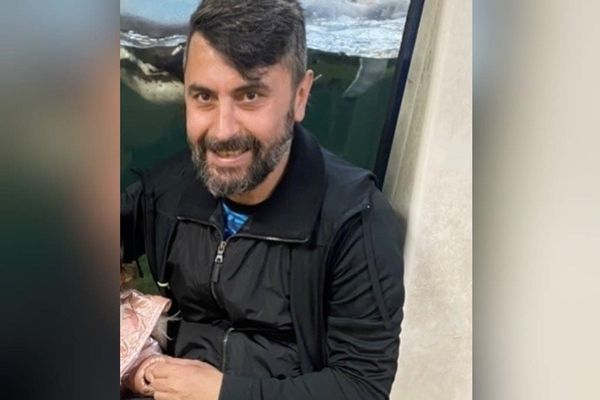WASHINGTON _ Sen. Lindsey Graham is a household name. He's a leading voice on immigration and foreign affairs. He's run for president. He speaks his mind in a way that endears him to his supporters and repels his detractors.
But he isn't used to a political life without Sen. John McCain.
"(I) was lucky enough to walk in his shadow and to witness history up close," the South Carolina Republican said on Tuesday in a tribute to the late Republican from Arizona. "To be in the presence of a giant at a time when everything around us was so small."
A Vietnam War hero who survived years of torture to become a senator and presidential nominee, McCain was considered the ringleader of a trio of senators known throughout the early 2000s as the "Three Amigos."
McCain, Graham and then-Sen. Joe Lieberman, I-Conn., would travel the world together on fact-finding missions informing their belief that America should exert itself philosophically and militarily to protect its interests and fight injustices.
When Lieberman retired in 2013, McCain and Graham brought Kelly Ayotte, R-N.H., into their fold. She lost re-election in 2016 and the trio was permanently down to two. McCain was largely absent from Washington over the past year as he battled brain cancer, leaving Graham to lead his party as a negotiator on immigration overhaul efforts.
Now, Graham is officially the last of the "amigos" left standing on Capitol Hill. He is perhaps best positioned to fill the void McCain has left behind _ as the voice of conscience of the legislative body, someone who is unafraid to speak up and work across the aisle on serious policy pursuits.
"He's already a leading voice," said Graham's fellow South Carolina senator, Republican Tim Scott. "He's going to have to carry more of the load, but he's certainly equipped for it. I think he's preparing for it. You can't fill the void but you can certainly continue the mission."
On Tuesday, less than 72 hours after McCain's death, Graham said he wasn't ready to claim the mantle.
"It is going to be a lonely journey for me for a while," Graham said Tuesday in a speech on the Senate floor while fighting back tears, reading from hand-written notes on several sheets of a legal pad. "The void to be filled by John's passing is more than I can fill. Don't look to me to replace this man."
Senators said Tuesday no one could replace McCain, anyway.
"It will be a long time before anybody like John McCain comes along again," said Sen. Roy Blunt, R-Mo.
But to whatever extent Graham is looking to step into the gap left by McCain's death, it's a task that might be easier said than done.
Unlike McCain, who publicly and unequivocally broke with President Donald Trump and instructed that the president stay away from his funeral, Graham has been mostly unwilling to go against the man he once accused of ruining the GOP.
Graham has been making the television news circuit over the past week to give Trump cover should he decide to fire Attorney General Jeff Sessions. It's a move many lawmakers say would throw into question the special counsel's investigation into whether the Trump campaign colluded with Russia to influence the 2016 election in its favor.
Last month, conservative commentator George Will wrote that Graham "for years enjoyed derivative gravitas from his association with" McCain but ceded moral ground by insufficiently taking Trump to task for not holding Russia accountable for election interference during a press conference in Helsinki with Russian president Vladimir Putin.
Speaking to reporters Tuesday, Graham said he was prepared to honor McCain's memory by breaking with the president on foreign policy, if necessary.
"I'm gonna give (Trump) my advice on what he should do and shouldn't do," he said. "If I see him drift back to the old ways, I will say something about it, and damn the consequences."
Sen. Robert Menendez, D-N.J., said Graham's pursuit of stronger sanctions against Russia was a sign he was willing to buck the Trump administration, but stepping in for McCain would ultimately require Graham to "mak(e) very tough decisions in moments that can be viewed as very difficult in a partisan way."
Senators acknowledged the close bond between Graham and McCain that could inform how Graham comports himself going forward. Sen. Ben Cardin, D-Md., noted that the two weren't simply friends: Graham, 18 years McCain's junior, was also in many ways the elder lawmaker's protege.
"Sen. Graham has been influenced more by Sen. McCain than perhaps any member in this body, so you do expect he will try to carry out his tradition," Cardin said.
"I'm different than John. I've got my own profile. But he has been my mentor," Graham told reporters.
McCain's influence on Graham is undeniable. The two men first became acquainted back in 1998. At that point, McCain's status was well established, and Graham was still a rank-and-file member of the House.
But McCain invited Graham to the annual Munich Security Conference after Graham delivered a slightly off-color one-liner about Bill Clinton and Monica Lewinsky's late-night phone calls during the impeachment trial that had McCain roaring with laughter. From that point on, the two were inseparable.
McCain gave Graham his first opportunities to visit war zones and remote corners of the world, which helped Graham develop his interventionist foreign policy outlook.
Now considered an expert on the nation's immigration laws and a perennial leader in efforts to help overhaul the system, Graham first learned about the issue from McCain in 2006. With Arizona a "ground zero" for many of the system's flaws, McCain had to care about immigration policy. A South Carolina lawmaker could have shied away from a politically toxic talking point, but McCain convinced Graham that fighting for a pathway to citizenship for undocumented immigrants was important enough to risk being vilified back home _ which he was.
McCain's bids for president in 2000 and 2008 also inspired how Graham conducted himself in his own run for the White House in 2015.
"He said, 'Just be you,'" Graham recalled in 2016, shortly after he suspended his campaign. "He said, 'Don't let people change your personality. And they'll try.'"
On Tuesday, Graham said the best he could do was to try to carry on McCain's legacy.
"I traveled everywhere with him and I will try to continue the legacy of John McCain on foreign policy on finding compromise," he said, "but when people come up in the McCain wing of the party and say, 'OK, it's up to you,' I say, 'It's up to us.'"







